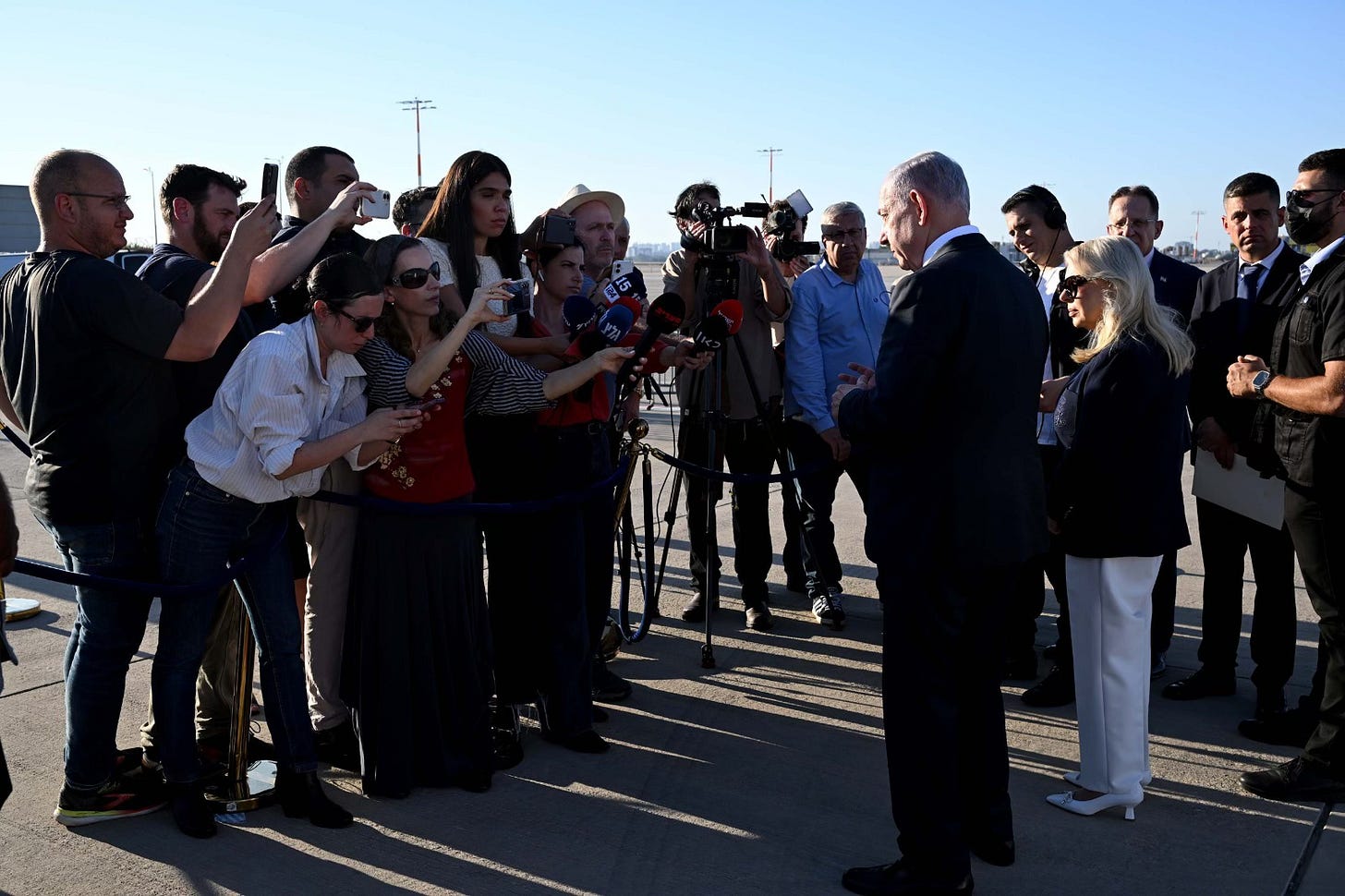
“There’s a good chance we have a deal with Hamas this week”, insisted Donald Trump ahead of his meeting with Israeli PM Benjamin Netanyahu in Washington today, as Israel-Hamas negotiations unfold in Qatar.
Netanyahu himself put out a more non-committal statement as he departed for the US, telling reporters: “The conversation with President Trump can certainly help advance the outcome we are all hoping for”.
Meanwhile, in Doha, indirect negotiations have reconvened on the latest US proposal for a Gaza ceasefire and hostage release deal.
Israeli and Hamas negotiators are both present but Egyptian and Qatari mediators are holding separate meetings with each delegation as they make yet another push to narrow the seemingly intractable gap between the two sides.
The latest proposal is for a temporary 60-day Gaza ceasefire, during which time half of the 20 living hostages and half of the 30 dead hostages would be handed over to Israel in five separate releases. The proposal also reportedly says that sufficient quantities of aid would enter Gaza immediately with the involvement of the UN and the International Committee of the Red Cross.
On Friday night, Hamas announced that it would not be rejecting the latest US proposal outright and instead gave a “positive response” – albeit while proposing amendments that Netanyahu has already labelled “unacceptable”.
The familiar sticking points remain.
Hamas is essentially still holding out for the same condition it has previously insisted on: a guarantee that any temporary truce will lead to an end to the war and Israel will not renew its bombardment of the Gaza Strip once the ceasefire expires and further Israeli hostages have been released.
While only 60 days long, the proposal is believed to say that mediators will ensure serious negotiations to end the war take place from day one of the temporary truce, and that the ceasefire can be extended if necessary.
But any guarantee that a ceasefire, unlike in March, will hold comes up against the same issue it did back then: the far-right members of the Israeli government, national security minister Itamar Ben Gvir and finance minister Bezalel Smotrich, are still threatening to topple Netanyahu’s ruling coalition unless he agrees to renew Israel’s offensive once the two-month hiatus is over. Both ministers, who are now sanctioned by Britain, expressed their disapproval of the deal on the table over the weekend and repeated their calls for the ethnic cleansing of Palestinians in Gaza and a halt to all aid deliveries into the enclave. Netanyahu must not settle for anything short of “full conquest of the Gaza Strip”, insisted Smotrich.
Another amendment requested by Hamas is about Israeli troop withdrawals. The US proposal is believed to include phased Israeli pull-outs from parts of Gaza but Hamas is reportedly demanding that Israeli troops return to the same positions they held right before the last ceasefire collapsed in March when Israel resumed its military campaign.
According to reports this afternoon, another sticking point has emerged today: Trump’s plan to exile all Hamas leaders has been watered down, meaning the latest proposal on the table in Doha would allow a small group of Hamas leaders to remain in Gaza – a development that will outrage much of Netanyahu’s coalition.
All in all, does this really provide grounds for hope that a deal could be reached this week?
It’s worth noting that Israel’s President, Isaac Herzog, made a rare intervention as Netanyahu boarded his plane for the US, insisting that the PM must be prepared to make “painful” concessions. And the US President – who is clearly eager to be in a position to claim credit for a significant breakthrough – is probably the only person with any real leverage to persuade Netanyahu to soften his demands.
But, despite the cautious optimism expressed by US, Qatari and Egyptian mediators, many of the familiar obstacles to a deal remain – meaning so does the agonising possibility that this is yet another false dawn.
Caitlin Allen
Deputy Editor
Ian Stewart
Reconfiguring supply chains for our volatile age

READ HERE
Sacked Russian minister found dead – Russia’s Investigative Committee says former Russian transport minister Roman Starovoit has been found dead, apparently with a self-inflicted gunshot wound. He was dismissed earlier on Monday by President Vladimir Putin, with no reason given and deputy transport minister Andrei Nikitin was announced as his replacement shortly after.
Trump’s latest tariff threat – US President Donald Trump has announced plans to impose a 25% tax on products entering the country from South Korea and Japan on 1 August. He warned separately that any countries who align themselves with “the Anti-American policies” of BRICS alliance, whose members include Russia and China, will be hit with an extra 10% tariff.
Toxic mushroom trial concludes – Australian Erin Patterson, 50, has been found guilty of murdering three relatives with toxic mushrooms which she hid in a beef wellington.
Death toll rises following Texas floods – At least 89 people are confirmed dead, with at least 75 in Kerr County alone, following flash floods in central Texas. Search efforts have continued for a fourth day for the dozens still missing.
-
The Times View: While the antics of Palestine Action are frequently criminal, branding them acts of terrorism was a misuse of the law.
-
The AI talent war is the stuff of Steve Jobs’ nightmares, writes Dave Lee in Bloomberg.
-
Britain’s state pension is about to blow, warns Maxwell Marlow, in The Spectator.
-
Stephen Bush lays out how Labour can resurrect itself, in The Financial Times.
-
The Economist on how America’s economy is dodging disaster.
